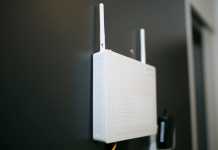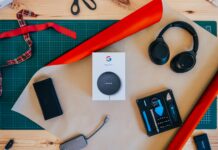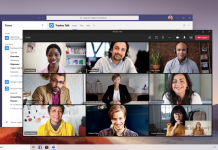
When it comes to smart security cameras, it’s likely that you’ve concentrated on the more flashy features, such as camera quality, app features, and cloud possibilities. Here are some reasons why you should think about your internet connection as well.
Bandwidth and data are required for smart security cameras.
If you need a refresher on how to choose security cameras for your house, we’ve got you covered. If you just want to go straight into the top security alternatives on the market, we also have some favorites to discuss.
When it comes to smart security cameras, it’s likely that you’ve concentrated on the more flashy features, such as camera quality, app features, and cloud possibilities. Here are some reasons why you should think about your internet connection as well.
Whether you’re contemplating a totally cloud-based system, such as the Google Nest cameras, or a hybrid system, such as the Arlo platform, which combines cloud and local storage, your internet connection will impact how well (or not) the system works for you.
What Effect Does Bandwidth Have on Camera Performance?
Let’s start with the influence of internet speed on smart security camera performance because this is the area that affects the most people—not everyone has a data cap, but everyone has a maximum internet speed.
Your internet connection speed affects camera performance in two ways: download and upload speed. The upload speed will be the limiting issue for the great majority of users.
Download Speed Has an Impact on Live Views
The download speed of your internet connection has the greatest influence on how well you can watch the live stream or cloud recordings from your smart security cameras.
Streaming security camera footage to your computer or phone through your home internet connection is similar to streaming video like TV shows, with the same download speed requirements.
To stream a single HD camera video from the cloud back to your house for viewing on your devices, you’ll need at least 3 Mbps of download bandwidth.
When calculating how much download speed you’ll need, remember to take into account how frequently you utilize your smart cameras. You’ll need enough download speed if you want to watch the live stream all day.
Overall Functionality Is Affected by Upload Speed
While download speed affects the smoothness of your viewing and replay experience, upload speed affects a wider range of characteristics of how your smart security cameras work.
To maintain high-resolution feeds, cloud-based systems like the Nest and Ring cameras demand a lot of upload speed. While live streaming or recording to the cloud, even the lowest settings on older cameras will utilize at least 1 Mbps per camera. To upload HD footage, newer cameras will need 4 Mbps or more per camera.
If your internet connection can’t handle it, you’ll have to lower the video quality or deal with stuttering, lost connections, or both.
So, while determining how much upload speed you’ll need to keep your household running well, consider how many cameras you have and what they require.
To satisfy peak demand, you’d need at least 12 Mbps of upload bandwidth on top of your typical family consumption if you had three security cameras that each required 4 Mbps to live record your property 24/7.
And don’t think this is just a problem for streaming when you’re away from home, like viewing your doorbell camera while you’re at work. Given that the bulk of well-known cloud-based systems, such as Nest and Ring, stream to the cloud before being delivered to your house, upload speed is important even if you’re at home with the cameras. Wherever you go, a sluggish upload has an influence on your experience.
What Effect Does Data Usage Have on Camera Performance?
If bandwidth is the speed at which a car travels, data is the amount of petrol it consumes. While a lack of available bandwidth may stymie your smart security cameras’ real-time operations—ultra HD security camera streaming and a rural DSL connection are not a match made in heaven—overall data utilization can also affect performance.
The problem is that a cloud-based smart security camera system can quickly deplete your data allowance. Viewing the cameras consumes bandwidth, but upload data is also counted toward data restrictions, so any system with live recording will soon eat a shocking amount of data in the background.
While you may only use the app to see your cameras on occasion, if they are continually connecting with the cloud, you might potentially be uploading hundreds of gigabytes of data every month. A single Nest Cam IQ, for example, can consume up to 400GB of Internet each month.
If you go over your data quota, you’ll have to pay overage costs as well as reduce the quality of your video to avoid going over it again. Any smart security camera system that uses a lot of data every month might not be a suitable fit for your family if you have a lot of people streaming, gaming, and downloading huge files.
With that in mind, it’s important to evaluate not only the entertaining features of smart security cameras, such as great night vision or 4K resolution, but also the less glamorous elements, such as internet connection needs and how much data average use will use.














































